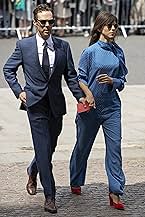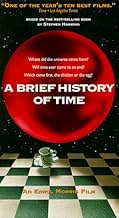Documentary maker Errol Morris tackles nothing less than the origin and fate of the universe, placing the often mind-bending theories of the popular science guide alongside a portrait of the author himself, British cosmologist Stephen Hawking, who for many years has been confined to a wheelchair, unable to move or speak, while his mind has been ranging freely all over creation. Hawking (and his ideas) can't help but inspire a compelling film, but there's an uncomfortable sense of déjà vu because the style is identical to 'The Thin Blue Line', with the same Philip Glass music score, the same oddball graphic digressions, and the same clips from old Hollywood movies (in this case Disney's 'The Black Hole', with mad scientist Maximillian Schell). But unlike the previous film there isn't any sense of resolution, because the questions posed by Hawking ("why do we remember the past, but not the future?") will likely never be answered. Out of respect for the scientist Morris downplays the deadpan ridicule that made his earliest films so amusing, but there's no shortage of the trademark dry wit, much of it provided by Hawking himself, who narrates most of the film with his own computer generated voice.
































